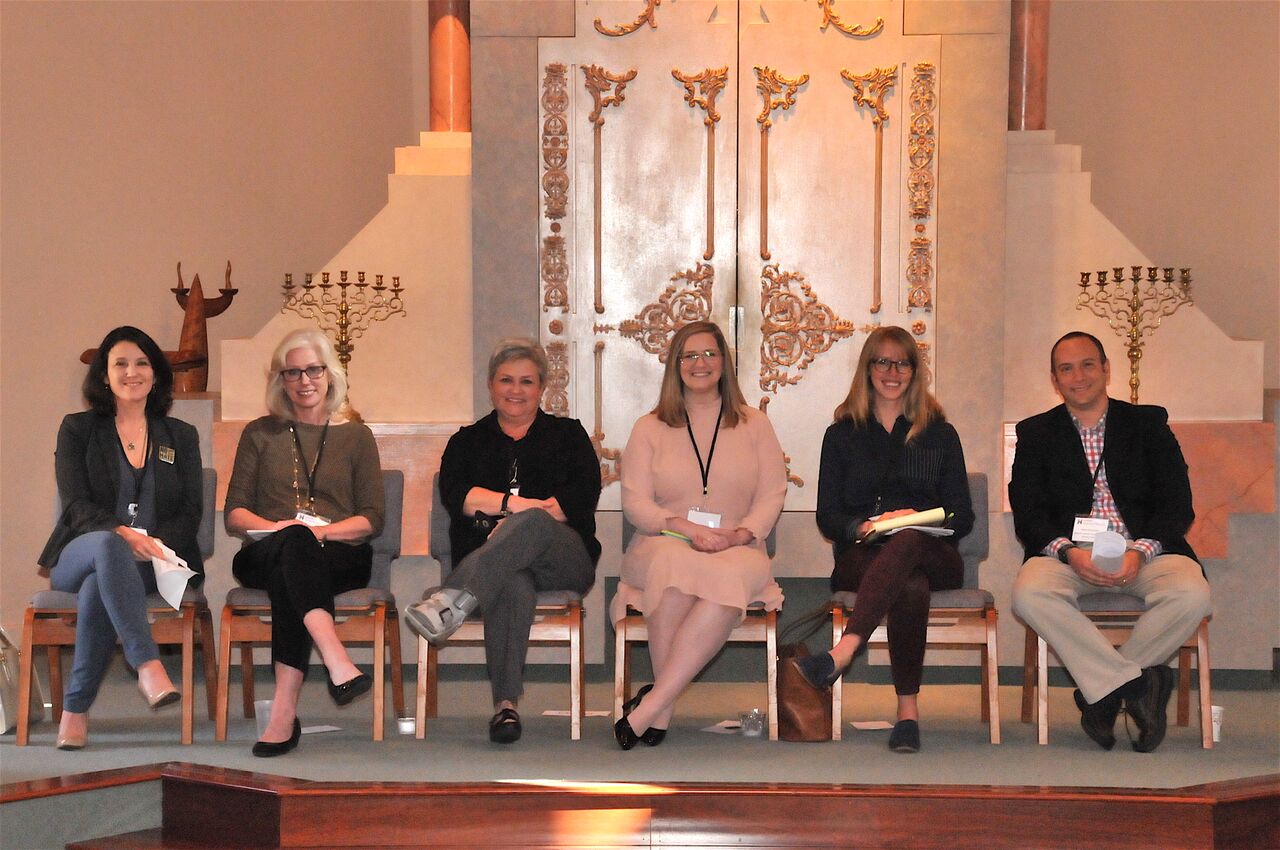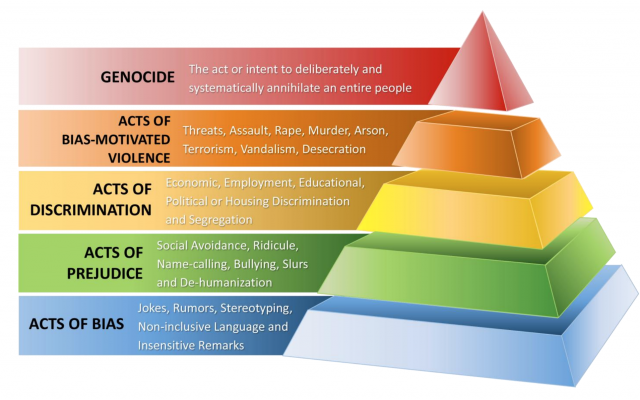Cyberbullying: See Something, Say Something
Experts agree: The most important way for parents to prevent cyberbullying is to monitor online activity and talk about expectations.
Panelists at Hadassah’s cyberbullying event at Temple Beth Tikvah on Sunday offered different perspectives on the topic, yet one message prevailed: Be an upstander, not a bystander.
Renee Evans, community and political advocate, opened with an anecdote about an Atlanta mother’s struggle to protect her special needs children from anti-Semitism at school. After months of harassment, including death threats at their home and swastikas carved into school property, the family was turned away by school administrators.
“They had money thrown at them. They were called names. They were terrorized, and there was nothing they could do,” Evans said, recalling that one of the children was hospitalized for suicidal ideation.
“People ask me, ‘What do you do when people are in crisis?’ My answer is: you do,” she said.
Cheryl Benefield of the Georgia Department of Education echoed Evans’ advice. State and federal laws protect students against bullying, yet engaging local law enforcement is the best first recourse. If these governing bodies are not receptive, Benefield suggested calling Georgia Emergency Management and Homeland Security Agency.

Benefield told the AJT, “Don’t participate; let others investigate. Most social media sites and many apps now have anonymous reporting features for content that may be harmful or questionable. When in doubt, report uncomfortable content immediately. It will be up to the developers to investigate, but you will remain anonymous. I would also encourage kids to report content of that nature to their own trusted adult so that they might seek intervention.
“Cyberbullying of our children most often stops when adults become involved. Encourage your child to be an upstander, not a bystander, and let someone know immediately if they or someone they know is being bullied.”
Author and cyberbullying expert Patti Agatston said adults play a large role in prevention of cyberbullying. Her checklist for parents and caretakers: “Be a role model for civility. Monitor your kids online. Rely on conversations with your kids about bullying. Encourage them to come to adults when they need help.
“The most important thing for parents to do in order to prevent cyberbullying is to have conversations – not lectures – with their children about how they treat others, both online and offline, in order to encourage the development of empathy and helpful behavior,” she said.
“Research suggests that employing active mediation by talking with your children about their digital lives, visiting the sites they enjoy and playing games or other online activities with them is more effective than passive monitoring that simply relies on restriction or blocking of sites.”

One tool designed to report suspicious behavior to authorities in Fulton County schools is the QuickTip app. Chelsea Montgomery, executive director for counseling, psychological and social work services in Fulton County schools, said adults and students can report worrisome situations from bullying to self-harm and receive help within minutes through QuickTip.
Kelly Cohen, JumpSpark ATL director, said apps are a positive, yet easy way to put power into the hands of teens. “Apps are a fascinating way to give teens and adults the ability to be upstanders using the language and tools they use to communicate every day. It’s how they’re used to communicating.”
Allison Padilla-Goodman, Anti-Defamation League Southeast regional director, reported a 57 percent increase in anti-Semitism in 2017, the largest year-on-year increase since the group began collecting data in 1979. Anti-Semitism increased 90 percent on college campuses and 100 percent in K-12 schools last year.
Padilla-Goodman said hate escalates from perpetuating stereotypes to committing genocide. “What if we had more allies and less bystanders? We need to encourage young people to want to be allies,” she said.
To text a crisis-trained counselor any time, day or night, send “GA” to 741-741.
Brittany Glaser, licensed therapist at The Summit Counseling Center, emphasized that every student needs access to a trusted adult. “If something is going on at school, you should know who to talk to. Force them to come to a go-to person. If someone feels off, tell the teacher,” she said, noting that students in therapy have a safe place to process their feelings and build self-esteem.
“Name your emotions. Tell your kids, ‘I’m terrified’ or ‘I’m sad,’” she said.
“Understand that, despite our best efforts, bullying in any form can and does happen. Ensuring that your child has a trusted adult with whom they can discuss potentially embarrassing and painful bullying behavior can make all the difference for them,” Benefield added.




comments